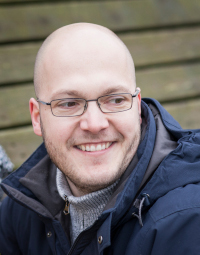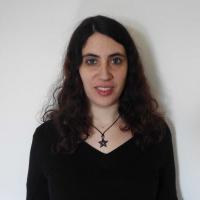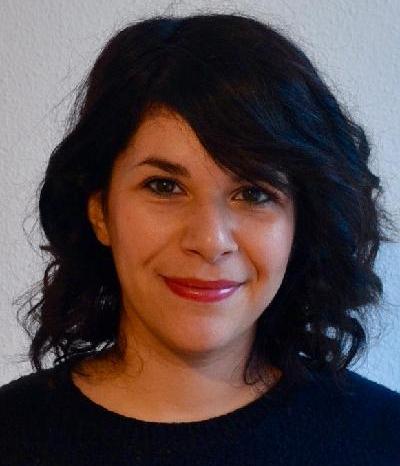Organization Committee
-
Alessandra Rossi, School of Computer Science, University of Hertfordshire (UK)
a.rossi@herts.ac.uk
Alessandra is currently a Marie Sklodowska-Curie Research Fellow / PhD student at the School of Computer Science, University of Hertfordshire, United Kingdom, under the supervision of Prof. Dr. Kerstin Dautenhahn. She is also a Visiting Lecturer at University of Hertfordshire. Alessandra received her B.Sc. and M.Sc. degrees in Computer Science from the University of Naples "Federico II", and her M.Sc. degrees thesis is entitled "Human Multirobot Interaction in Robot and Group Selection Tasks". Her research interests include multi-agent systems, social robotics, Human–(Multi)Robot Interaction, home companion and user profiling. Alessandra is also an active member of the RoboCup soccer team "Bold Hearts", University of Hertfordshire.
-
Dr Patrick Holthaus, School of Computer Science, University of Hertfordshire (UK)
p.holthaus@herts.ac.uk
Patrick is the research coordinator and technical manager of the Robot House at the University of Hertfordshire. He is also a Research Fellow in the Adaptive Systems Research Group. His research interests include systems integration in heterogeneous environments, interaction architectures and behaviour coordination, and the social credibility of companion robots. Patrick was a postdoctoral researcher at the cluster of excellence Cognitive Interaction Technology (CITEC) and a member of the Cognitive systems engineering group working on the large-scale project Cognitive service robotics apartment. Patrick received his Ph.D. on the topic of an "Integrated concept of spatial awareness" which originates from research conducted in the Applied Informatics Group and SFB 673 "Alignment in Communication" at Bielefeld University where he also received a master's and a bachelor's degree in computer science.
-
Sílvia Moros, School of Computer Science, University of Hertfordshire (UK)
s.moros@herts.ac.uk
Sílvia is a research assistant at the University of Hertfordshire. She received an industrial engineering degree at the Universitat Politècnica de Catalunya (UPC), and a PAIR Master degree in Automated Production and Robotics at the Fundació CIM - UPC. She is currently obtaining a Master degree in robotics at the Universidad Carlos III in Madrid, and she is studying psychology at the Universitat Oberta de Catalunya (UOC). She is primarily concerned with the EU Horizon2020 BabyRobot project. Her research interests include social robotics, Human-Robot Interaction and design of robotics behaviours for children with autism.
-
Marcus Scheunemann, School of Computer Science, University of Hertfordshire (UK)
m.scheunemann@herts.ac.uk
Marcus is a PhD candidate at the School of Computer Science, University of Hertfordshire, under the supervision of Prof. Dr. Kerstin Dautenhahn. He is also a Visiting Lecturer at University of Hertfordshire. He received his M.Sc. degree at the Ulm University in Germany. His research interests include Human-(Multi)Robot Interaction, artificial intelligence, navigation, sensor fusion, social robotics. Marcus was team leader of the RoboCup soccer team "Nao Team Humboldt", Humboldt University of Berlin, and he is currently team leader of the RoboCup soccer team "Bold Hearts", University of Hertfordshire.
-
Dr Giulia Perugia, Department of Information Technology, Uppsala University (Sweden)
giulia.perugia@it.uu.se
Giulia is a postdoctoral researcher at the Uppsala Social Robotics Lab led by Dr. Ginevra Castellano. She received a BA in Literature and Linguistics from the University of Roma Tre (Rome, Italy) in 2011, a MSc in Cognitive Science from the University of Siena (Italy) in 2013, and a double degree PhD in Assistive Technologies from the Polytechnic University of Catalonia (UPC; Barcelona, Spain) and Eindhoven University of Technology (TU/e; Netherlands) in 2018. As a scientist, she is interested in understanding and modeling the emotional and social linkage that the interaction with social robots triggers, how this can be used for assistive and educational purposes, and how it might impact and shape our society. At present, she is involved in the project COIN, Co-adaptive human-robot interactive systems, a project funded by the Swedish Foundation for Strategic Research (SSF) within which she is building novel models of human-robot affective co-adaptation to apply to educational scenarios.